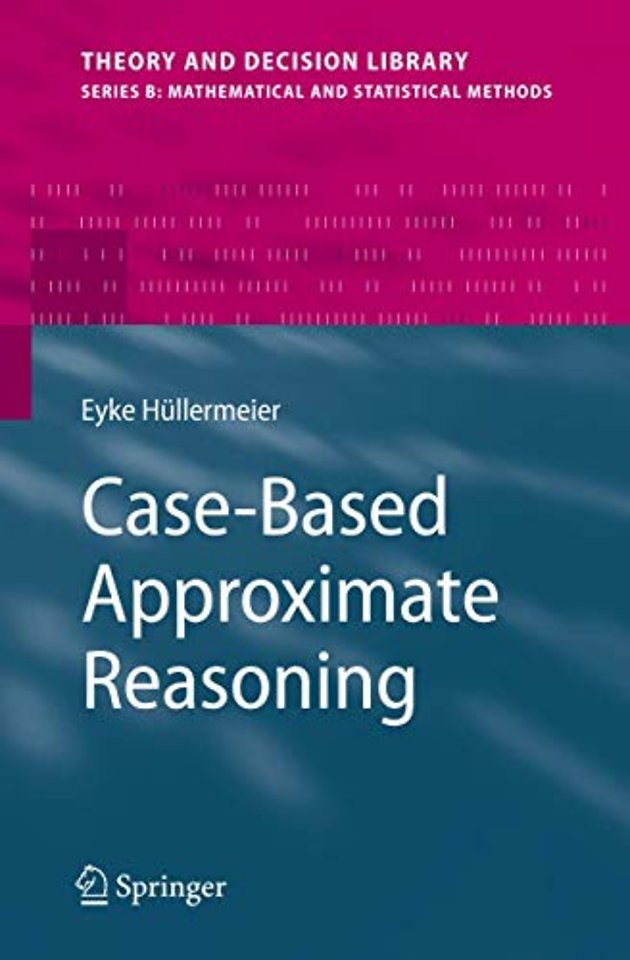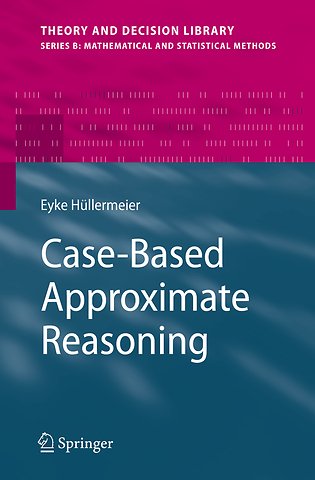Case-Based Approximate Reasoning
Paperback Engels 2013 2007e druk 9789048174317Samenvatting
Making use of different frameworks of approximate reasoning and reasoning under uncertainty, notably probabilistic and fuzzy set-based techniques, this book develops formal models of the above inference principle, which is fundamental to CBR. The case-based approximate reasoning methods thus obtained especially emphasize the heuristic nature of case-based inference and aspects of uncertainty in CBR.
Specificaties
Lezersrecensies
Inhoudsopgave
1. Introduction.1.1 Similarity and case-based reasoning.1.2 Objective of this book. 1.3 Overview.-
2. Similarity and Case-Based Inference. 2.1 Model-based and instance-based approaches. 2.2 Similarity-based methods. 2.4 Case-based inference. 2.5 Summary and remarks.-
3. Constraint-Based Modeling of Case-Based Inference. 3.1 Basic concepts. 3.2 Constraint-based inference. 3.3 Case-based approximation. 3.4 Learning similarity hypotheses. 3.5 Application to statistical inference. 3.6 Summary and remarks.-
4. Probabilistic Modeling of Case-Based Inference. 4.1 Basic probabilistic concepts. 4.2 Case-based inference, probabilistic reasoning, and statistical inference. 4.3 Learning probabilistic similarity hypotheses. 4.4 Experiments with regression and label ranking. 4.5 Case-based inference as evidential reasoning. 4.6 Assessment of cases. 4.7 Complex similarity hypotheses. 4.8 Approximate probabilistic inference. 4.9 Summary and remarks.-
5. Fuzzy Set-Based Modeling of Case-Based Inference I. 5.1 Background on possibility theory . 5.2 Fuzzy rule-based modeling of the CBI hypothesis. 5.3 Generalized possibilistic. 5.4 Extensions of the basic model. 5.5 Experimental studies. 5.6 Calibration of CBI models. 5.7 Relations to other fields. 5.8 Summary and remarks.
6.1 Gradual inference rules. 6.2 Certainty rules. 6.3 Cases as information sources. 6.4 Exceptionality and assessment of cases. 6.5 Local rules. 6.6 Summary and remarks.-
7. Case-Based Decision Making. 7.1 Case-based decision theory. 7.2 Nearest Neighbor decisions. 7.4 Fuzzy quantification in act evaluation. 7.5 A CBI framework of CBDM. 7.6 CBDM models: A discussion of selected issues. 7.7 Experience-based decision making. 7.8 Summary and remarks.-
8. Conclusions and Outlook A. Possibilistic Dominance in Qualitative Decisions.-
References.
Rubrieken
- advisering
- algemeen management
- coaching en trainen
- communicatie en media
- economie
- financieel management
- inkoop en logistiek
- internet en social media
- it-management / ict
- juridisch
- leiderschap
- marketing
- mens en maatschappij
- non-profit
- ondernemen
- organisatiekunde
- personal finance
- personeelsmanagement
- persoonlijke effectiviteit
- projectmanagement
- psychologie
- reclame en verkoop
- strategisch management
- verandermanagement
- werk en loopbaan

